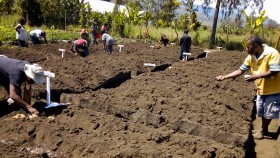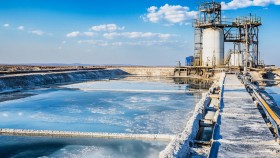Psychologists at ‘crisis point’ in wake of disasters
By Jess Fagan
A significant number of psychologists have experienced burnout and negative impacts on their mental health because of recent disasters, according to a new study by researchers at The Australian National University (ANU).
There has been a growing demand for psychologists as Australians deal with the ongoing mental health consequences of COVID-19, as well as weather disasters such as severe storms and floods.
Adding to this, most psychologists have also been personally impacted by one or more of these disasters. Lead author of the study Dr Emily Macleod said this has taken a considerable toll on psychologists’ own mental health.
“Around one in three psychologists reported symptoms of depression, while almost half, 47.6 per cent, reported low wellbeing,” Dr Macleod said.
“More than a quarter, or 26.4 per cent, reported burnout, while a third were in danger of burnout.”
Dr Macleod said the psychology workforce is reaching a crisis point.
“Worryingly for the stability of the workforce, almost half of the psychologists we surveyed had changed job sectors or roles since 2019 – the main reasons being a poor work culture or unsustainable work pressure,” she said.
Significantly, only 30.5 per cent of the psychologists surveyed said they felt well prepared to manage the mental health needs of clients during future disasters.
“Given the expected increase and severity of disasters, now more than ever it is important to support psychologists and prepare them to respond effectivity to future disasters,” Dr Macleod said.
“There are four broad phases of disaster management: prevention, preparation, response and recovery. Psychologists and the wider Australian community are largely still in recovery from the events of the past three years.”
The study showed psychologists responded to the added pressure by showing increased flexibility, resilience, and the use of self-care.
But Dr Macleod and her co-authors said the workforce needs more support.
“There are structural issues that need to be addressed. Things like training more psychologists to meet demand, providing them with disaster-specific training and creating workplace cultures that encourage flexible work arrangements would help significantly,” Dr Macleod said.
Head of Disaster Solutions at the ANU Institute for Climate, Energy and Disaster Solutions, Dr Roslyn Prinsley, said with climate change driving an increase in extreme events, looking after our psychologists has become more important than ever.
“The latest State of the Climate report confirms the risks of disasters are rising in Australia,” she said.
“Our approaches to disaster management cannot keep up. We need to be prepared for more and worse disasters. Psychologists are on the frontline. We need more of them and to support them better.”
The research team included experts from the University of Melbourne as well as ANU. The study was supported by the Australian Government’s Medical Research Future Fund and the ANU Institute for Climate, Energy and Disaster Solutions.
The report is available online.
This article was first published at ANU Reporter.











